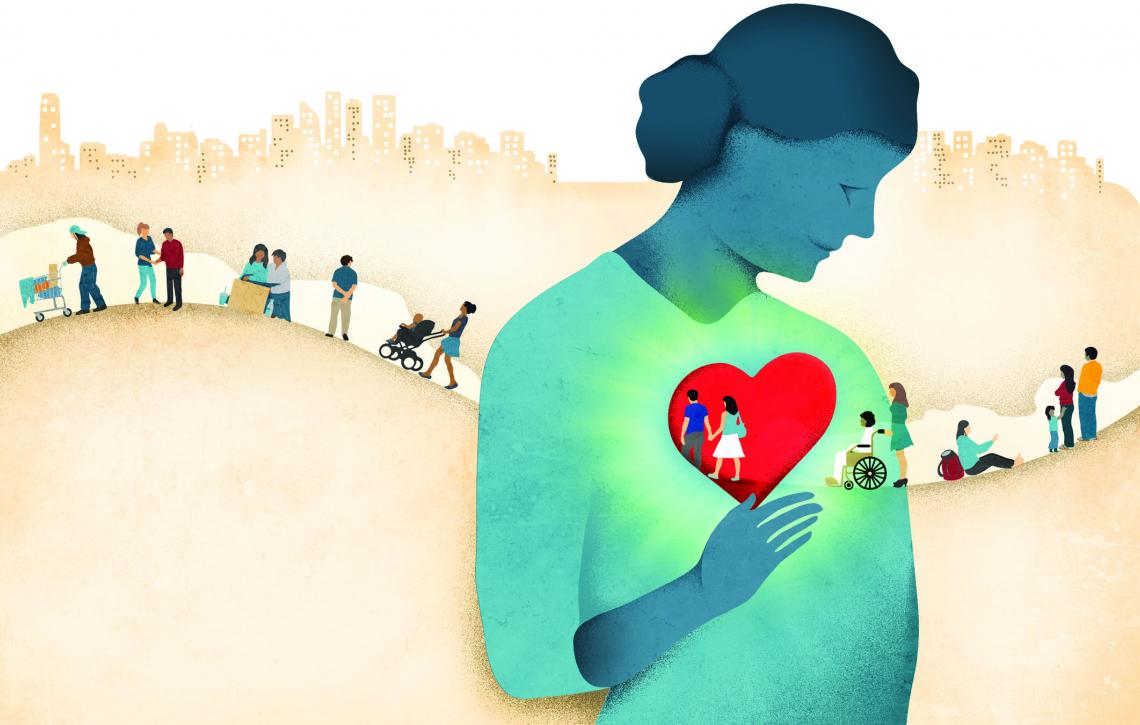The sun is setting as I circle a house looking for a back entrance to where I’m told a young man lives. Knocking and calling out loudly, I enter a crawl space that doesn’t allow me to stand up straight. “I’m down here,” echoes the tired voice of a 19-year-old Indigenous male lying on the floor. I explain that I am an RN for one of London’s community health-care agencies, and that I’ve come by to set up his intravenous antibiotics. He was discharged from hospital less than 24 hours after surgery for a septic knee. I will never forget the look of pain on his face. Without any identification or a status card, he was unable to pay for his prescription. I reached out to several community services, and found support to get him the pain relief he needed.
On my way out, I left two quarters beside his blanket, asking him to call me if he had issues through the night with his intravenous. At 3 a.m., during my on-call shift, the phone rang. He had walked two kilometres in immeasurable pain to the nearest payphone.
This moment in the fall of 2016 was one of many in my career when I felt overcome with fury, hopelessness, and despair. In other such moments, I listened to a homeless woman fearful that her unborn baby was cold as she wandered the streets at night; I felt challenged to complete diabetic health teaching for a patient with food insecurity; I listened helplessly to stories of nursing students burning out in hospital placements even before their graduation; and I watched academics working tirelessly to secure grants in pursuit of systemic change.
Despite the variability in nursing roles, we all find ourselves with our backs against the wall when life’s injustices are unmasked. As nurses, we have come to expect hardship every day. But I can’t help but wonder if we can come together and challenge each other to be hopeful, and to consider the possibility that we can eradicate these inequities that contribute to poor health.
This past fall, I attended the 2017 Canadian Alliance to End Homelessness conference in Winnipeg. A courageous woman, Jolene Wilson, shared a visionary exercise. She challenged us to imagine a time when we or a loved one was very sick. Imagine having no one there for you, she said. Now imagine living in poverty, or being homeless.
The audience sat still. People were deeply moved. Moments later, an Indigenous woman encouraged us to drum against the table. She explained that the drum helps us to find balance, and bring laugher and energy back into our being. We drummed, and before long, some of the weight of despair in the room had lifted.
I wondered…could this experience mimic our practice?
In nursing, I believe we must be open to learning, empathetically engaged, and reflective. We must critically and courageously challenge the status quo. We need to lean on the meaningful moments in our careers to feel energized and hopeful to pursue change.
Nurses have strong hands, stronger voices, and even stronger hearts. Whether we stand for one person or one hundred, we can become part of a catalytic shift toward emphasizing common humanity and protecting and caring for all people.

